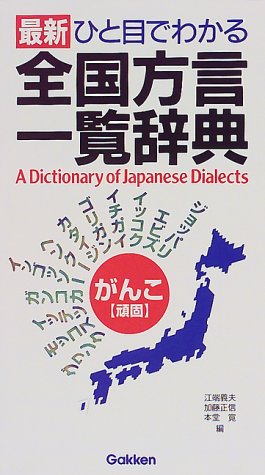3 0 0 0 IR 比較方言学の方法に馴染まない「つるべ」のアクセント地図に関する社会地理方言学的解釈
- 著者
- 江端 義夫
- 出版者
- 広島大学教育学部
- 雑誌
- 広島大学大学院教育学研究科紀要 第二部 文化教育開発関連領域 (ISSN:13465554)
- 巻号頁・発行日
- no.49, pp.93-100, 2000
This paper attempts to prove the proper grounds of the Social Geodialectological study on the word atlas of the accent in Japan. We should discuss positively about the word-accent atlases in future, although the comparative dialectology had been maintained the systematical method for a long time. The following 4 points are discovered: l.Tsu┌rubega┐, as the Tokyo dialect accent, has covered over the Central Japan since 1960. 2. ┌Tsu┐bega, which is a special accent, has been increased suddenly among the youth since 1980. 3. Because we became not to use the "tsurube" in daily life, the youth had confused the name of the comedian with "Tsurube" as a well bucket. 4. ┌Tsu┐bega, which was different from the big two accents of East and West Japan, happend to emerge according to these complex reasons. Comparing with the dialect atlases of several decades, we can promote to study the accents geodialectologically.
2 0 0 0 IR 日本のあいさつ表現とあいさつ行動の地理言語学的研究
- 著者
- 江端 義夫
- 出版者
- 社会言語科学会
- 雑誌
- 社会言語科学 (ISSN:13443909)
- 巻号頁・発行日
- vol.3, no.2, pp.27-38, 2001-03
本研究は,多様な地方差が見られる日本のあいさつ表現とあいさつ行動を地理言語学的に研究したものである.あいさつの調査票は日常のあいさつ表現について11分野,88項目で構成されている.実地調査は1994年から2000年にかけて,日本の全県で行い,併せて,通信調査を1997年から2000年にかけて,全国約500余地点で実施した.本稿には,二種のサンプル地図がある.一つは,「朝起きた時に家族にどんなあいさつをするか」であり,他の一つは「朝家族を玄関で見送る時のあいさつ行動はどのようであるか」である.研究の結果,次のことが明らかになった.1)朝起きた時家族に「オハヨーゴザイマス」とあいさつをするのは都市の家族であり,これは地方では聞かれない.都市においてこの表現が頻用されるのは,個室に分割された居住環境に基づく.地方の古い家では,障子や唐紙によって各部屋を仕切っただけの居住環境であり,朝起きた時に他人行儀なあいさつ表現を行わない.しかし,1960年以降の高度経済成長に伴い,この傾向は変化しつつある.ただし,2)「朝家族を見送る時のあいさつ行動」の地図が明示するように,都市には「イッテラッシャイ=イッテキマス」という行為(建て前)が見える.地方では「無言」(本音)があり,対立は厳然としている.あいさつ表現の言語地図を解釈するためには,社会生活の変化に対応した人間生活の変化とその意識を考慮しながら行う,ダイナミックな見方や感性が必要である.This study geographically describes the greeting expressions and behavior in Japan, which vary according to dialects. The questionnaire consisted of 11 parts with 88 questions about Japanese daily greeting expressions. Fieldwork was done in each Japanese prefecture from 1994 to 2000, followed by a postal survey from 1997 to 2000 using the same questionnaire. A sample result showed that when family members in urban areas speak to each other after getting up in the morning, they use the expression Ohayo-gozaimasu. However, this expression is not heard in rural locations. The use of this expression depended on the use of separate rooms in the urban areas. However, old houses in rural areas have rooms divided simply by paper screens with wood frames called Shoji or Karakami. This makes it natural for family members not to use courtesy expressions during their first meeting every morning. After the 1960s, however, changes occured. In conclusion, the author believes that the interpretation of the greeting expressions, related to changes in social life, becomes increasingly important. Also a dynamic view and sense should connect the atlas with changes in human life.
- 著者
- 江端義夫 加藤正信 本堂寛編
- 出版者
- 学習研究社
- 巻号頁・発行日
- 1998
1 0 0 0 IR 滋賀県東浅井郡浅井町三田方言における身体感覚を表すオノマトペ
- 著者
- 江端 義夫
- 出版者
- 方言研究ゼミナール
- 雑誌
- 方言資料叢刊 (ISSN:09173277)
- 巻号頁・発行日
- no.2, pp.99-105, 1992-04-01
